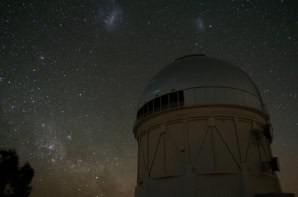French astronomers identified their priorities for the next decade at a meeting held in Arcachon last month.
The meeting, attended by 200 astronomers, discussed the future of more than 40 facilities and drew up a plan to provide a basis for budget discussions with the ministry for education and research. It strongly supports France’s continued participation in the European Southern Observatory and several other international projects.
However, cuts to the astronomy facilities budget are inevitable as the government directs money away from large facilities and towards shorter-term projects. The 1998 budget for large astronomical facilities will be cut from FFr 730m (about £71m) to FFr 700m. And the research ministry is seeking another FFr 20m in cuts, according to Jean-Pierre Gratin, who is responsible for astronomy at the ministry.
To save money, the research minister, Claude Allègre, last year proposed reducing France’s FFr 130m subscription to the European Southern Observatory (ESO) by FFr 30m. However, after tough discussions, Allègre agreed to a FFr 10m cut.
The astronomers at Arcachon also backed the Institute for Millimetre Radio Astronomy (IRAM) based in Grenoble. The facility is a collaboration between France, Germany and Spain.
Of the space programmes, the next-generation space telescope (a successor to the Hubble telescope that is due for launch in 2007) and Mars Express (a European Space Agency project due for launch in 2003) also won strong support.
Potential losers include the European incoherent scatter radar, a joint project to study the ionosphere that is financed by France and six other countries. The meeting discussed reducing France’s contribution to the facility – which cost FFr 194m to construct – from 23% to 15%.
Another potential loser is the solar telescope THEMIS, currently funded 80% by France and 20% by Italy. Participants praised the project – which cost FFr 87m to build – but recommended asking other European countries to help cover the FFr 6m annual running costs.
France’s many small national telescopes may also lose funding. There are plans to move them under the partial control of their user communities, with the users picking up much of the bill for their maintenance. And the Canada-France-Hawaii 4 m optical telescope in Hawaii looks set to end operation in 2005.



